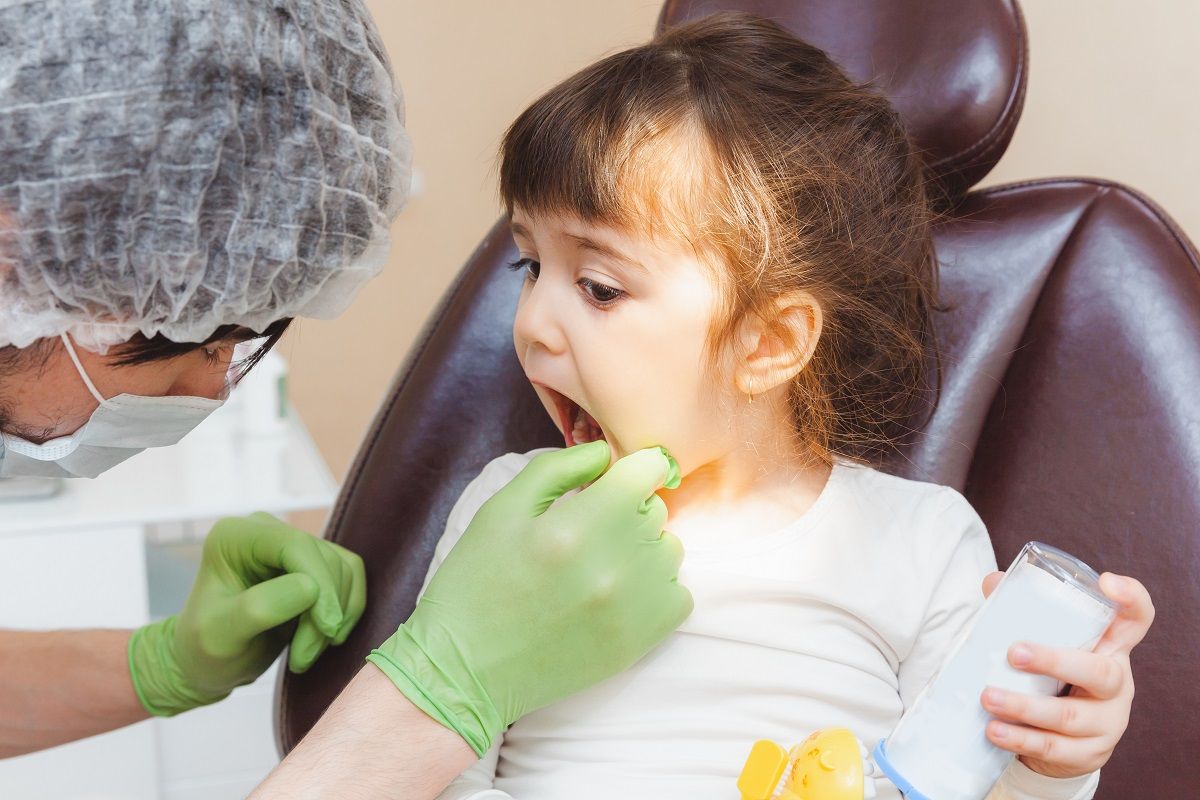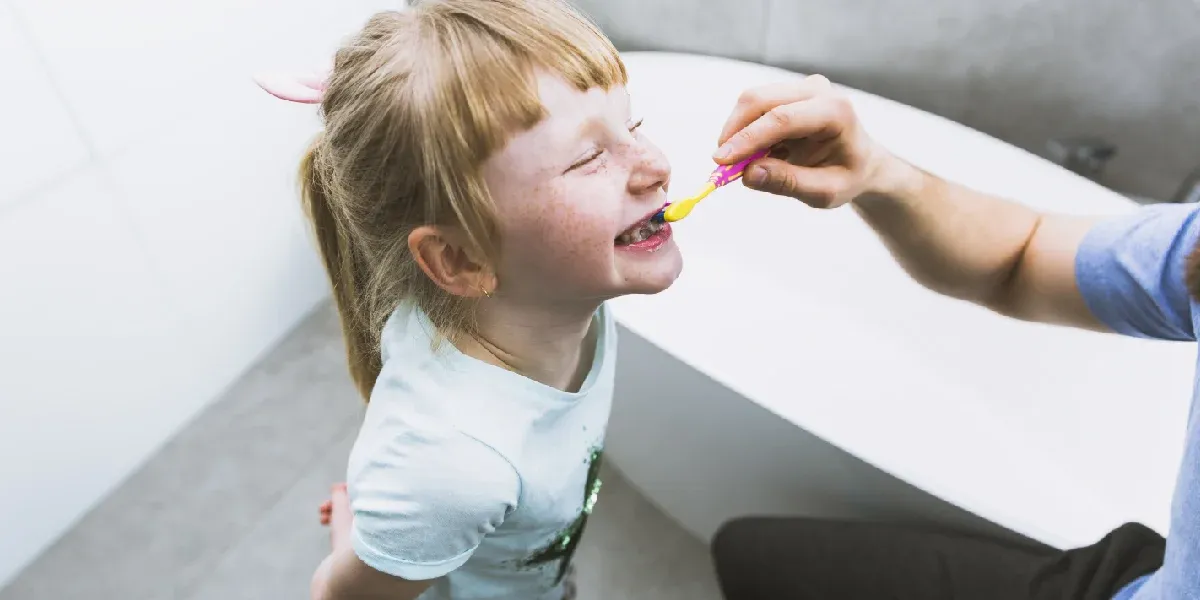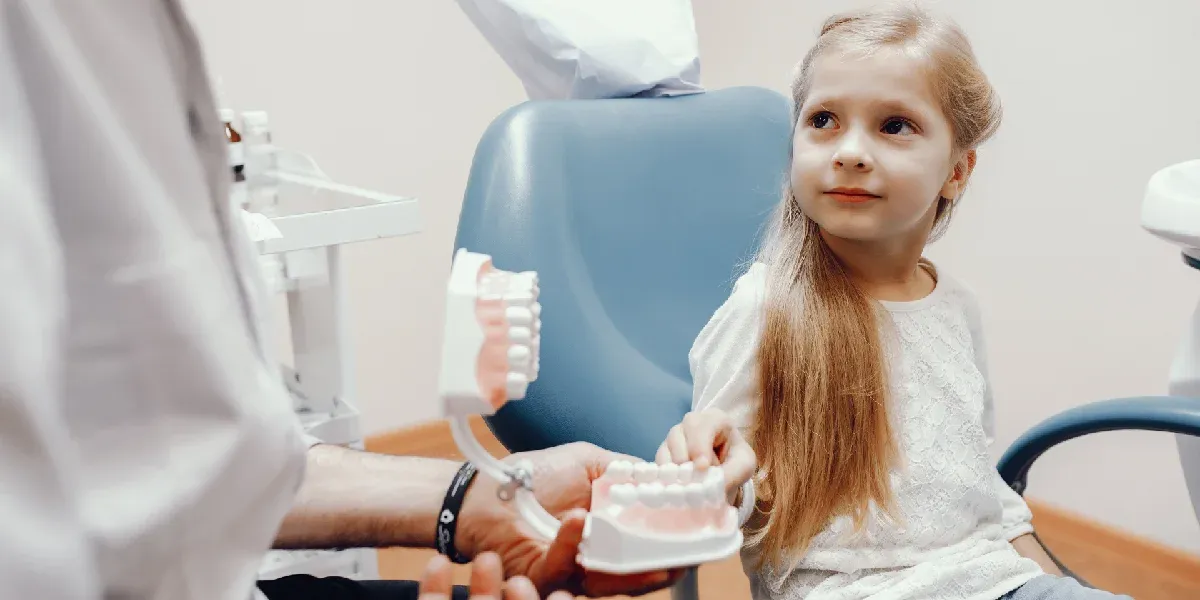
When Does Pediatric Tooth Extraction Become Necessary?
It's not unusual for parents to feel as anxious as their children during pediatric tooth extraction. The great news is that tooth removal is gentle, safe, and fast, and with the support of local anesthesia and nitrous oxide, not all that uncomfortable either.
Whenever possible, dentists will attempt to save a patient's natural tooth. In some cases, a severely decaying or injured tooth requires extraction. By removing a potential cause of discomfort and infection, dental extractions help restore oral health.
"The best way to ease dental pain and suffering is to do the right thing at the right time. Then, it lasts for a long time".
Reasons for Pediatric Tooth Extraction
On average, children are supposed to lose their primary teeth around the elementary school. They fall out independently and usually do not require any tooth extraction. However, some children might have dental issues, and their tooth is extracted before a permanent tooth is ready to erupt. Though it is always better to save a tooth, sometimes tooth extraction becomes necessary. Here we will discuss the reasons why pediatric tooth extraction becomes necessary.
- Infected or Broken Teeth
Removing baby teeth is typically necessary in cases where the teeth have sustained significant damage. In a severe accident, for instance, a child's baby teeth may be broken, dislodged, or impacted, and it may be necessary to extract them.
An extraction may be necessary when a kid has irreparable decay or damage to one or more teeth. Such can result from trauma (a car crash or playing sports), infection (an abscess in the bone or gums), or a cavity that is too large to be filled. If no treatment options are available, your dentist may suggest pulling the tooth to fix the issue and prevent more damage.
Tooth extraction, in such cases, offers numerous benefits. It reduces harmful bacteria that can damage the gums and teeth. It allows resuming optimal oral health by removing a tooth that's causing pain or discomfort.
- Overcrowding Issue
Some children have overcrowded teeth, which impairs their oral health functioning. When the baby teeth are retained in the mouth for so long, they result in overcrowding of teeth. Dentists in such conditions recommend tooth extraction to eliminate the need for orthodontic treatment. If there is an overcrowding issue in your child's mouth, discuss it with your dentist. Your child might need a tooth extraction for better dental health.
- Preparing for Braces
Sometimes, there is a need for braces; and the dentist recommends extracting a few teeth from your child's mouth. The main aim of removing a few teeth is to attain well-aligned teeth and a healthy bite. Teeth crowding leads to insufficient spacing and have hidden bacteria. Besides causing bad breath and other oral health problems, overcrowding causes bone loss and gum disease. At the same time, tooth extraction to eliminate overcrowding aids the orthodontic procedure of your child.
How To Ease Children's Tooth Extraction?
In unlikely situations, you can take a few precautions to make the experience more comfortable for everyone involved. You may count on these recommendations:
- Choosing a dentist - By using a helpful resource, you can locate a dentist who focuses on pediatric patients and is skilled at calming nervous patients while showing them respect and compassion.
- Observe sedation - Dentists can provide a range of soothing methods to make the extraction process more straightforward and less distressing for your child, though this will vary on their age.
- Carefully observe the dentist's aftercare - Your dentist will provide detailed aftercare advice following tooth extraction. Please keep your child away from hard foods and straws for 24 hours. Be on the lookout for signs that your kid needs to follow directions.

Best Way to Prepare Your Child for Tooth Extraction?
When your child's dentist recommends tooth extraction, preparing them for the procedure is imperative. Doing so will help eliminate his dental anxiety and ongoing emotional discomfort. You can shape your child's experiences into positive ones by providing emotional support and guidance. Giving your child a positive experience will make them value the importance of dental care. And it will also build their trust in the dental activity. Here are some smart tips to reduce your child's tooth extraction anxiety.
- Ask your child to stay positive. Make him understand that almost everyone goes through a tooth extraction procedure. Also, share your experience if you had a tooth extraction procedure before. Convey the importance of staying optimistic for attaining better health.
- Let your child ask questions. Children are curious, and they learn by asking questions. Let your child ask questions about the tooth extraction procedure and give responsive answers. It will help eliminate your child's anxiety, and he will prepare in advance.
- Make the day as relaxing as ever. Make the tooth extraction day relaxing for your child. Elevate his mood and involve your child in healthy activities to calm him before the procedure.
- Give some form of reinforcement. Children like to get praised and get support in the form of gifts. Gift something to your child after the process and let him know in advance. It will make his day, and he will wait for the present and forget about his dental anxiety.
The Pediatric Tooth Extraction Procedure
First, your dentist might take an X-ray to examine the tooth's underlying roots and bone. In most cases, the dentist uses a local anesthetic for a simple extraction. After separating the tooth's periodontal ligaments, your dentist uses forceps to pry it out of its socket.
More extensive dental work in pediatric tooth extraction is increasingly possible thanks to sedation dentistry. Sedation with nitrous oxide or intravenous medication is common practice for this procedure. In cases of more difficult extractions, removing part of the gum tissue surrounding the tooth may be necessary to remove it successfully.
After Care for Pediatric Tooth Extraction
It's important to reassure your kid (and yourself) that they might have some bleeding after tooth extraction. Your dentist will immediately pack the area with sterile gauze. The extraction site may require a couple of stitches to ensure proper healing. A blood clot will form directly to protect the exposed bone behind the gums; be careful that the chunk remains or the underlying bone might become inflamed and painful, a disease known as a dry socket.
The mouth may also swell around where your child has extracted the tooth. You should apply ice to the affected region for around twenty minutes to help reduce any swelling. Look out for any pain your child experience, and if swelling develops, you should discuss this issue with your child's pediatric dentist as soon as possible. You can provide your child with over-the-counter pain medicine if they experience discomfort or pain.
Following a tooth extraction, ensure that your child eats only soft foods and drinks plenty of healthy daily fluids. You should feed your child meals that are easy to chew for the initial day or two following the extraction, and you shouldn't allow them to drink via a straw because this could disturb the blood to a clot that is preventing the bleeding from getting worse. Also, have the child avoid chewing on the extraction site for a few days. Once the child feels comfortable, he can resume chewing on both sides.
After tooth extraction, careful teeth cleaning is required. Have your child clean his teeth properly except at the extraction site for at least 24 hours. After a day has passed, the child can fully resume the cleaning practice around the extracted and surrounding teeth. It is also recommended to rinse with salted and warm water to promote healing and prevent infection.
Conclusion
So, this entire thread revolves around pediatric tooth extraction. It is best to develop positive dental hygiene practices in your child at the earliest feasible age. They must be aware of the many benefits of following excellent oral hygiene routines, such as teeth brushing twice a day and regularly flossing. These behaviors can help avoid various oral health concerns and help your child's smile remain intact for many years.
Contact your Stockton dentist, Dr. Sajjad Rizvi, at Happy Kids Dental to learn more about Pediatric Tooth Extraction.
Resource:
How to Prepare Your Child for Tooth Extraction?
*This media/content or any other on this website does not prescribe, recommend, or prevent any treatment or procedure. Therefore, we highly recommend that you get the advice of a qualified dentist or other medical practitioners regarding your specific dental condition*
Subscribe To Our Newsletter
Get Updates And Learn From The Best


